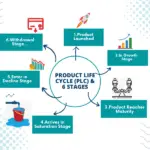Here are some of the most relevant interview questions on leadership with answers. Please note that the answers provided are generic examples, and actual responses should be tailored to your personal experiences and leadership style. However, these questions and answers will certainly put your leadership skills to the test.
15 Interview questions on leadership with answers
The following are 15 of the most relevant interview questions on leadership, along with sample answers to help you prepare. We tried to cover various topics such as leadership style, motivation, conflict resolution, delegation, and more. However, you are welcome to suggest any changes, we are open for feedback.
Also Read: Tell Me About Yourself in Interviews
Question: How do you define leadership, and what does it mean to you?
Answer: Leadership is the ability to inspire and guide a group of individuals toward a common goal. A great leader is someone who leads by example, empowers their team, and fosters an environment of trust and collaboration. It means taking responsibility for the team’s actions and ensuring their success.
Question: What are the most important skills for a leader to have?
Answer: The most important skills for a leader to have are communication, delegation, problem-solving, and decision-making. Leaders need to be able to communicate effectively with their team members, delegate tasks effectively, solve problems creatively, and make decisions that are in the best interests of the team.
Question: How do you inspire and motivate your team members to perform at their best?
Answer: I believe in recognizing and celebrating both small and big achievements. Acknowledging individual efforts and publicly appreciating their contributions boosts team morale. Additionally, I ensure that each team member’s work aligns with their passions and interests. By providing opportunities for growth and learning, team members are more motivated to excel in their roles.
Question: What is your leadership style? Do you adapt it based on the situation or team dynamics?
Answer: My leadership style is collaborative and empowering. I believe in involving the team in decision-making, but I am not afraid to take charge when necessary. I adapt my style to the team’s needs and the situation at hand. For instance, during a crisis, I may become more directive to provide clear guidance, whereas, in a creative project, I encourage team members to share their ideas freely.
Question: How do you handle conflicts or disagreements within your team?
Answer: Conflict is a natural part of any team dynamic. I address conflicts by facilitating open and respectful discussions. I encourage team members to express their perspectives and listen actively to all sides. Once the issues are clear, I work with the team to find a resolution that considers everyone’s interests. If necessary, I mediate and find common ground for all parties involved.
Question: As a leader, how do you ensure that everyone’s opinions are heard and valued?
Answer: I create an inclusive environment where everyone feels safe expressing their ideas. In team meetings, I actively seek input from all members, and I make sure to listen without judgment. Even in challenging situations, I encourage the team to voice their concerns, and I genuinely consider their feedback when making decisions.
At this point, you are halfway through the list of interview questions on leadership. Take a little pause and think-
Do you want to hire candidates who are experts in Agile? Check out these essential Agile interview questions to help you recruit people with the right skills.
Question: How do you establish and communicate clear goals and expectations to your team?
Answer: I set SMART (Specific, Measurable, Achievable, Relevant, Time-bound) goals for the team and ensure they align with the organization’s objectives. I communicate these goals clearly and provide context to explain their significance. Throughout the project, I keep the team informed about progress and any adjustments to the goals, ensuring everyone is on the same page.
Question: Describe a time when you had to make a tough decision as a leader. How did you approach it, and what was the result?
Answer: In a previous role, we faced budget constraints that required downsizing the team. It was a challenging decision, but I approached it with transparency and empathy. I held one-on-one meetings with affected team members, explaining the situation and offering support during their transition. The result was that, although it was a difficult time for everyone, the team appreciated my honesty and the way I handled the situation with compassion.
Question: How do you handle stress and pressure while leading a team or managing a project?
Answer: Stress and pressure are inevitable in leadership roles. To manage them effectively, I prioritize self-care and encourage the team to do the same. I find that regular exercise, meditation, and time for hobbies help me stay balanced. I also promote a positive work culture where the team feels comfortable expressing their stress, and we collectively find ways to alleviate the pressure.
Question: Can you share an example of a time when you had to delegate tasks effectively to achieve a project’s success?
Answer: In a recent software development project, I had a team with diverse skills and expertise. I delegated tasks based on individual strengths, ensuring that each team member was working on assignments that matched their abilities. I also provided clear instructions and timelines, ensuring everyone knew their responsibilities. This streamlined workflow led to successful project completion within the given timeline.
Question: How do you build trust with your team?
Answer: I build trust with my team by being honest and transparent with them. I also keep my promises and follow through on my commitments. I also make sure to listen to their concerns and suggestions, and I take their feedback seriously.
Question: What steps do you take to foster a positive and inclusive work environment for your team?
Answer: To foster a positive and inclusive work environment, I prioritize open communication and mutual respect among team members. I encourage diversity and inclusion initiatives and organize team-building activities that celebrate different cultures and backgrounds. Additionally, I promote opportunities for growth and career advancement for all team members, regardless of their backgrounds.
Question: How do you give feedback to your team members, and how do you handle receiving feedback from them?
Answer: When giving feedback, I focus on constructive criticism and provide specific examples to help team members understand areas for improvement. I always ensure to balance negative feedback with praise for their strengths and accomplishments. Regarding receiving feedback, I welcome it openly and view it as an opportunity for personal growth and development.
Question: Have you ever faced resistance or pushback from your team while implementing a new strategy or initiative? How did you address it?
Answer: Yes, during a reorganization project, some team members were resistant to the changes. To address this, I held individual meetings to understand their concerns and fears. I empathized with their feelings and explained the rationale behind the changes. I also offered support and additional training to help them adapt to the new structure. Over time, their resistance diminished, and they embraced the changes positively.
Question: How do you identify and develop potential leaders within your team or organization?
Answer: I observe team members’ performance, potential, and willingness to take on additional responsibilities. I provide mentoring and coaching to those displaying leadership qualities. I also encourage them to participate in leadership training programs and opportunities to develop their skills further.
Question: How do you measure the success of your team?
Answer: I measure the success of my team by tracking their progress toward their goals. I also look at their overall morale and satisfaction. I also ask for feedback from my team members so that I can get their perspectives on how we are doing.
Question: What is your vision for the team?
Answer: My vision for the team is to create a high-performing team that is known for its innovation and creativity. I want the team to be a place where everyone feels valued and respected, and where everyone has the opportunity to grow and develop.
Note
Looking to build a team of expert automation engineers, these are the automation testing interview questions to hire the right candidates.
Conclusion
We hope this guide has been helpful in preparing you for your leadership interview. The 15 interview questions and sample answers we’ve provided will help you create your own answers. So, modify them as per your taste and prepare the responses in advance.
If you’re all set to answer these interview questions on leadership, you can increase your chances of success. By the way, before you leave, give us a chance to answer any queries or questions you may have. We want to ensure that you reach your goals. Good luck!









